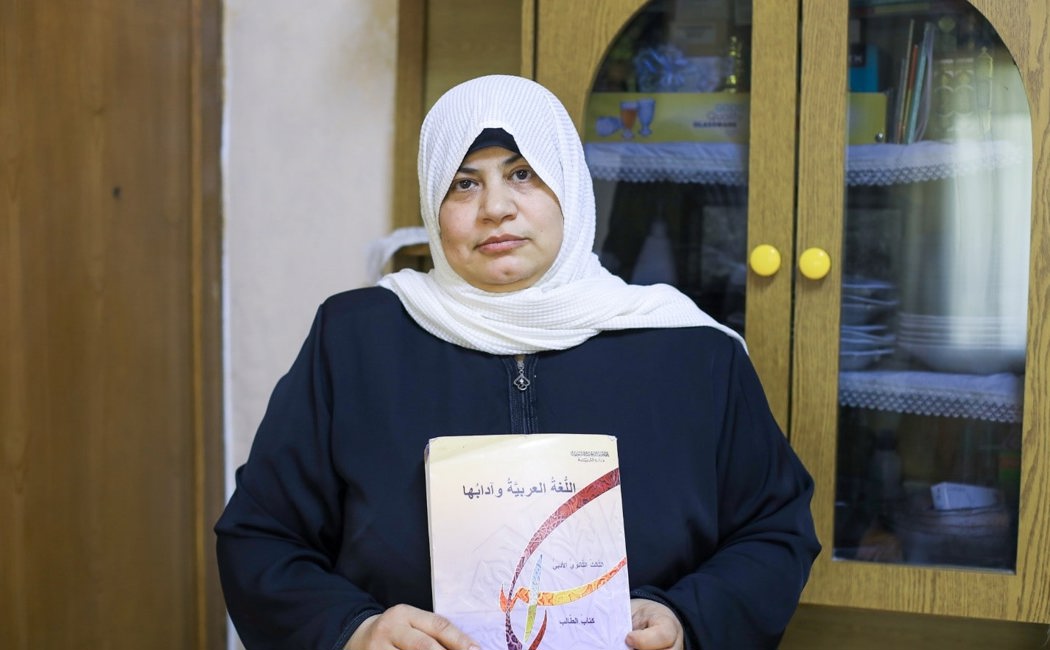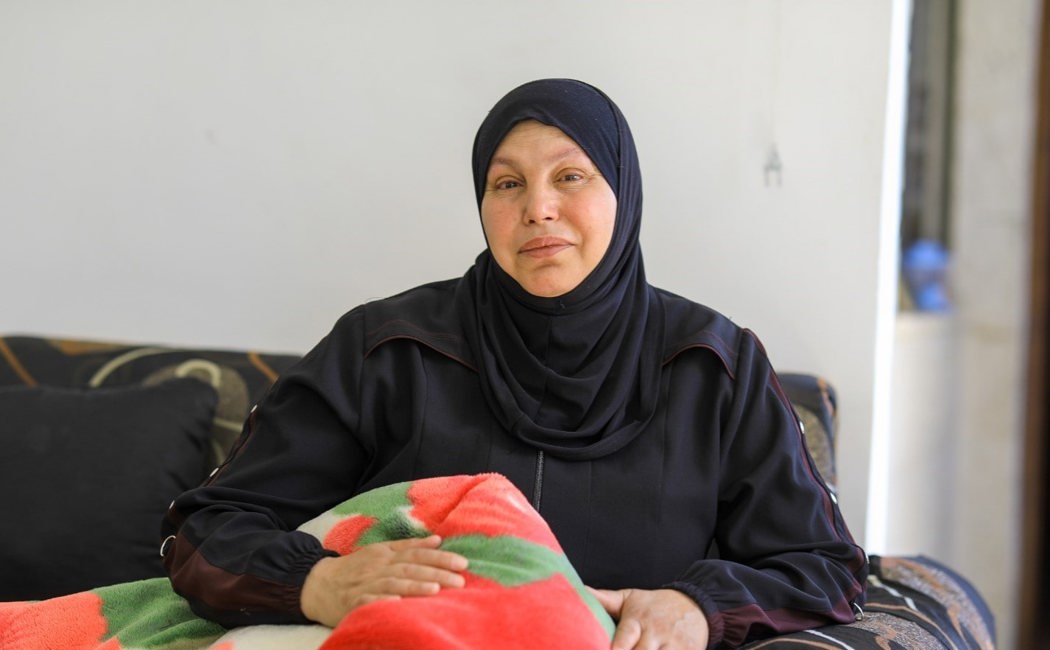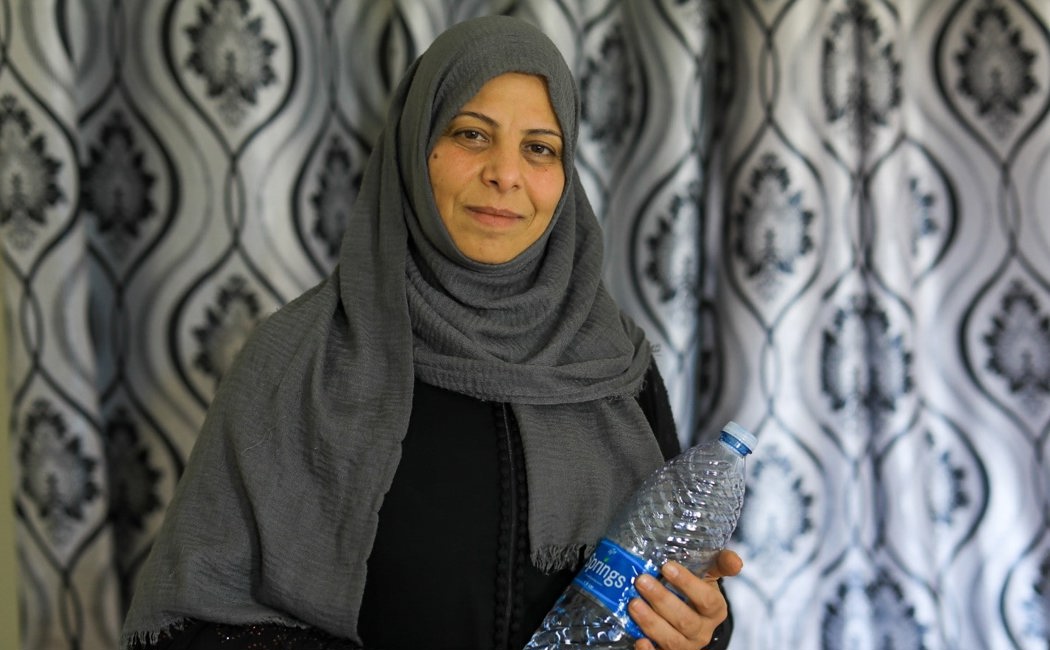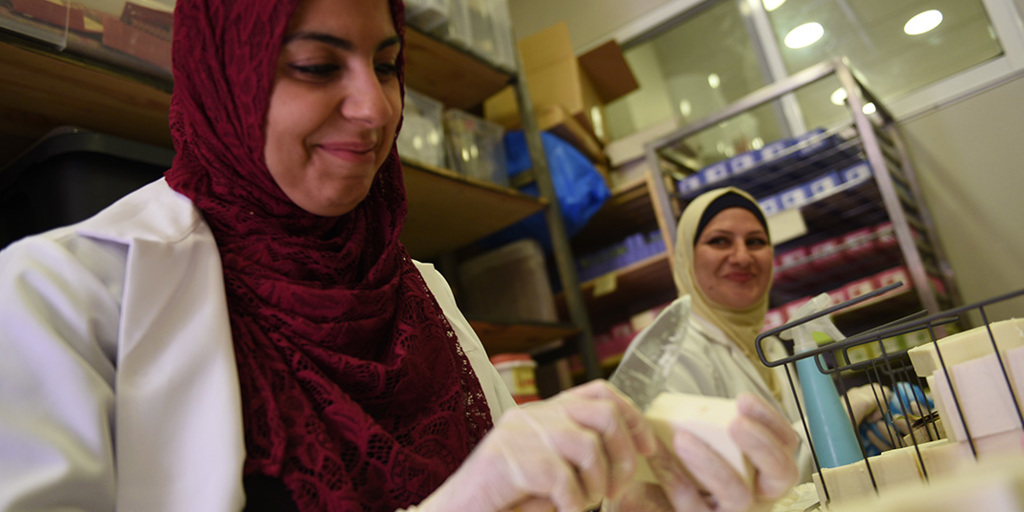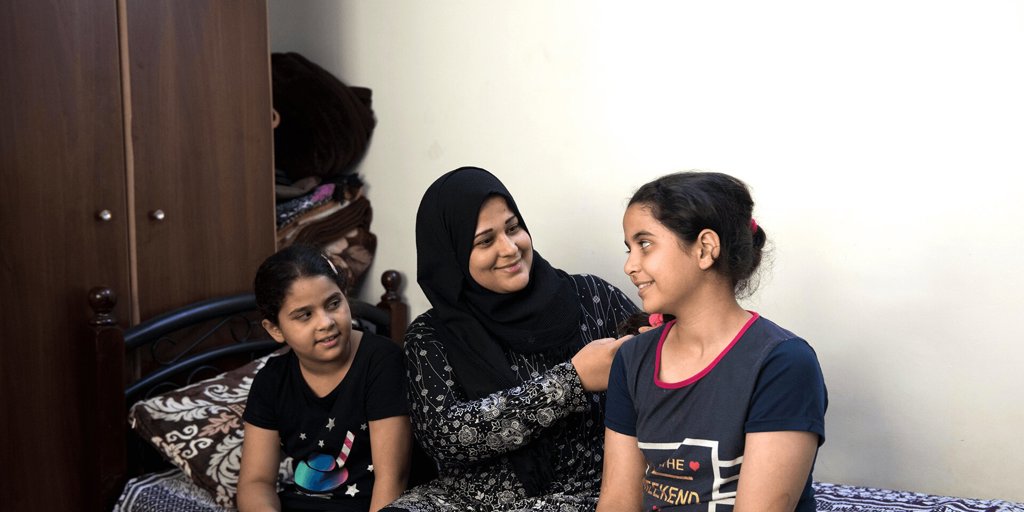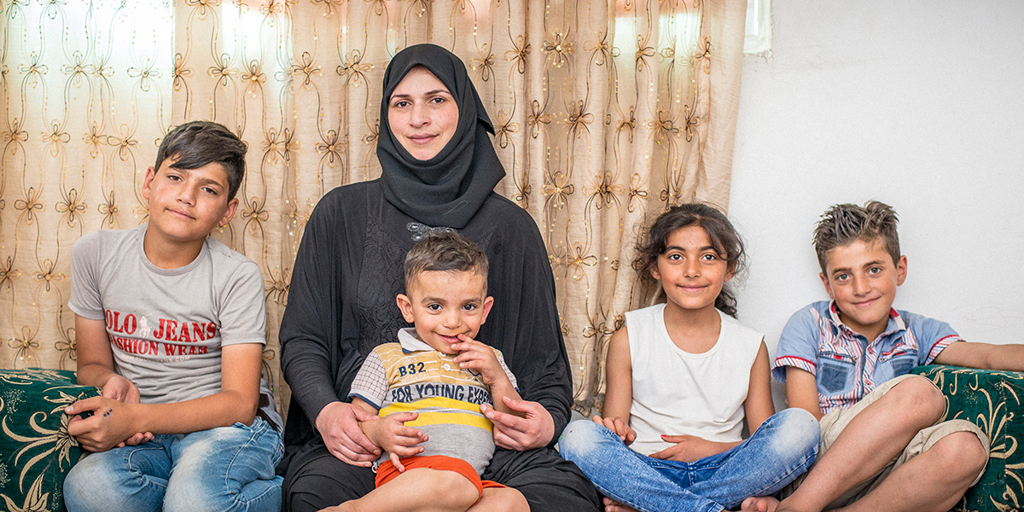Eman
In Syria, Eman was a high-school Arabic teacher who specialised in teaching older students taking their final exams.
“The school was my second family,” she recalls. “I felt like a supplementary mother to the girls I taught.”
When the conflict began, however, Eman was forced to flee her home in Homs and cross into Jordan, where her brothers lived. Among the few things she brought with her were her school textbooks.
“I feel joy when I hold this book,” she says. “It reminds me of so much. I still hear the voices of my students calling me ‘Miss’ and asking questions. All the discussions we had about Arabic grammar and language. Even when I arrived in Jordan, I remained in contact with some of my students through Facebook. It was one of the saddest days when I heard the school had been destroyed.”
“I don’t think anything will beat the memories we created there.”
Eman’s husband died of natural causes before the conflict began, so she was already a single mother - her eldest child was only eight years old. Her parents also had health issues.
“My father was very sick – he was on crutches – so it was difficult for him to walk to the border. But when we left home, we had to walk a long way until we found a car that could take us.
“I felt like a mother hen, my children under one wing and my parents under the other."
The family camped at the border for 14 days before they were allowed into Jordan. Eman immediately sought health care for her parents and recalls worrying constantly about how she would look after them while ensuring her children continued their education. She credits the Jordanian government’s decision to allow refugee children to enrol in school for stabilising the family. That, and the monthly cash assistance of 110 Jordanian dinars ($AUD 230) she receives from UNHCR to help pay rent and bills. Eman says this has been essential in keeping her children – Suhair, 17, Mohammad, 16, and Zeina, 15 – in school.
After putting so much effort into their education, Eman is worried about what will happen once they graduate high school.
“My friends and neighbours tell me that my children should just start working, that it is pointless even trying to get them to go to university,” she says. “But education provided so much for me; I hope it will be a blessing for them as well.”
















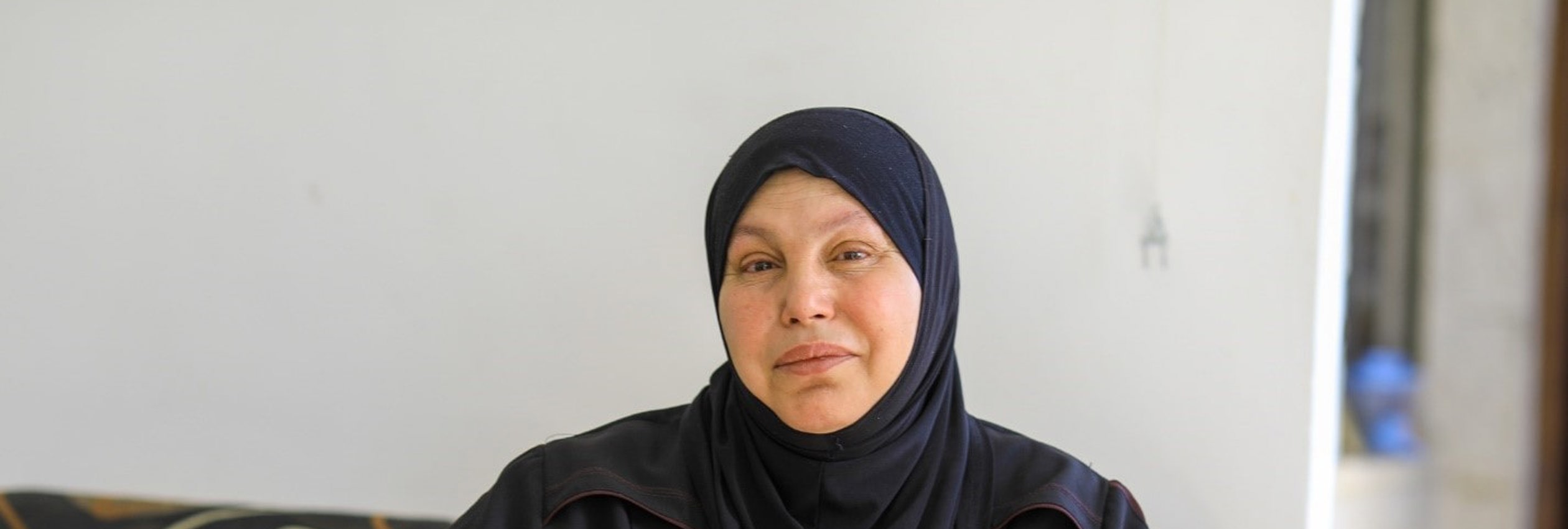
 Jordan
Jordan
